I have designed a bra-fastening for a handicapped lady, and would like to sell my idea to a company that could manufacture it. I am on a restricted budget. Any suggestions?
Conversational Threads
Threads Insider
Get instant access to hundreds of videos, tutorials, projects, and more.
Start Your Free TrialAlready an Insider? Log in
Conversational Threads
Highlights
-
Sign up for the Threads eletter
This site is protected by reCAPTCHA and the Google Privacy Policy and Terms of Service apply.See all newsletters -
 Sponsored Content
Sponsored Content
Where to Buy
-

-

-

-

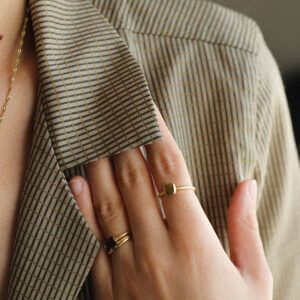
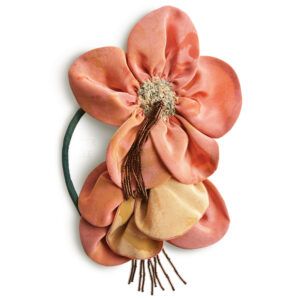

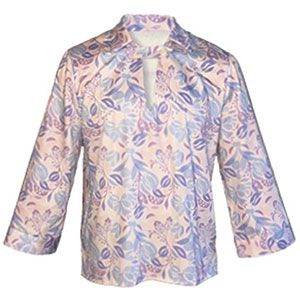
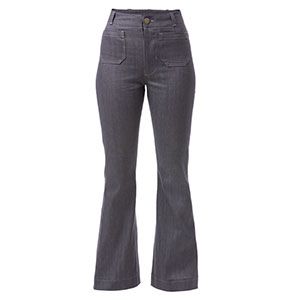
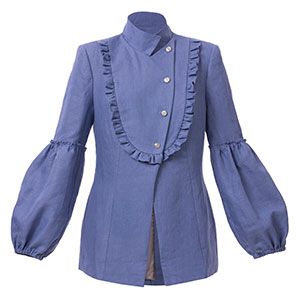
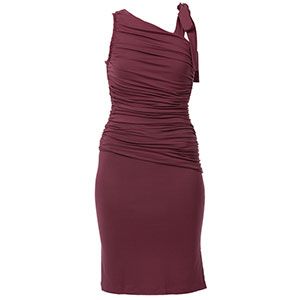
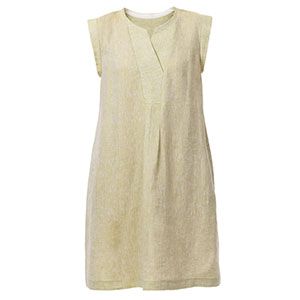
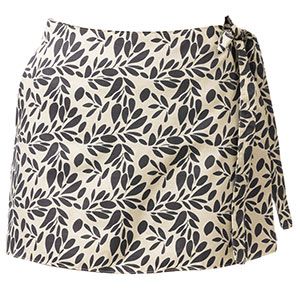
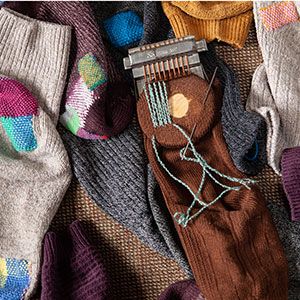

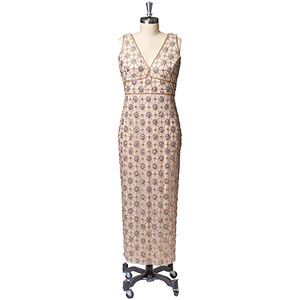

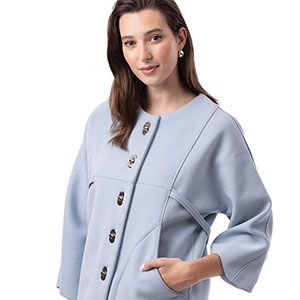
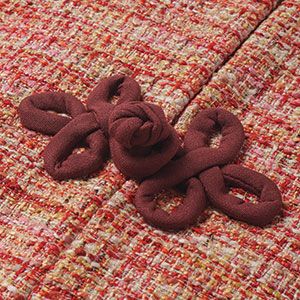




Replies
there is an add on TV for invention or inprovement on a product or call the consummerguide they might be able to tell you .
Had to choose, Internet or cable tv- guess which won!! So I havn't seen the ad you refer to, sorry. I've been too busy to miss the TV anyway.
Hi Tangent,
I am on a similar path and there is so much to learn to sell an idea. Is there a local Inventor's Club that you can hook up with? Support from others who have been through the process is invaluable. I attend a club like this and the synergy is amazing. If you want to sell an idea you may want to explore patenting it and that may take up to 4 years at the cost of up to $3,000...not to scare you but consult a patent attorney BEFORE you disclose your idea to a company. People can be nasty and copy an idea that you have not protected. Decide if your potential market is large enough to make the long path worthwhile. Cheers to you for developing it and good luck!
Thanks for your advice! No such group in my area that I know of. Actually, I had heard patenting was a good idea but expensive, and wondered if anyone had found another way.... like maybe a simple direct sale? (I wish!!) My idea is fairly simple, would be easy to copy, so I have to be vague about the details.
I just brought a new sewn product to market. I have a design patent, and I have done years of research prior to getting to this point. Here is a brief summary of the process I used.
I designed a product to solve a problem. This is the way that many products are invented. I am a dressmaker, so I had the knowledge, and equipment to produce a prototype. I did a lot of research on the web, and I bought many books, and studied them. I retained a patent attorney, and payed for a design patent [about $4000]. During all of this research I continued to run my dressmaking business so that I always had income. I revised the look of my product to make it not just useful, but also visually appealing. Next I studied packaging. I hired an artist, web designer, and a photographer to give my product a great look. All of my research taught me that many people have good ideas, but it is usually those people who take the project step by step that have a chance at success.
There are companies that advertise that they will do all of this for you, but there are many people who have been burned. The inventor is usually the person with the passion for their idea. Passion is required to do all of the leg work involved.
There are companies that will license a product, and pay the inventor a portion of the profits [should there be any] when the product sells. Most companies are interested in licensing a product that has some history of being successful....in other words...after the inventor has done most of the work.
There are many good books, and web sites that will describe all of these steps. One of my favorites is Kathleen Fassenella's web site Designer-Entrepreneurs.com. This web site is a treasure trove of information, and you can also order her excellent book on sewn products at that site.
It has been really satisfying, and exciting for me to learn all of these new things, and it was so great when I took my product to my first trade show a few weeks ago. There was great feed back on my product, and I got into 12 stores. There is still lots to do, but I am trying my dream! I have a post-it on my sewing machine. It says: I fear regret, more than I fear failure. Go for it!
Thank you for your reply. My idea is a modification to an existing item of clothing, so the handicapped person can make use of it, and I will not be producing or selling it myself. Being a very specialized 'limited market' thing, I don't think there would be any point in mass-producing it, more likely it would be made as needed, to suit the needs of the customer.
Your information is an eye-opener about how much background work can go into something before the retail customer sees it! I'm curious what it was that you designed. Obviously a lot of thought and work went into it.
I, too, am curious about what it is that you designed. Can you tell us or does it violate some sort of protocol on the board?Either way, I wish you success with your product. It sounds like your heart and soul went into it.
I'm at work right now (don't tell my boss!) but at home I have a book about ways to sell ideas, products, and designs by a guy who does this for a living. I just moved and my 2000+ books are just thrown on the shelves for now. I will search for it and get back tomorrow. It might be of some help to you, as he suggests ways to sell ideas without having to go through the patent process. However, he does stress as one of the other posters has said, that your passion for the product, research, and marketing ideas are the key to selling your idea. He also gives ideas on how to research and market.
Here's the book - "How to License Your Million Dollar Idea" by Harvey Reese. (Everything You Need to Know to Make Money from Your New Product idea) ISBN 0-471-58050-3. 1993; Published by John Wiley & Sons, Inc. Hope this helps.
Hello FitnessNut;
Did you ever hear about Villiage Dressmakers new invention? I'm dying to know too!
I don't want to ask again if she would prefer not to answer.
Either way, what an acomplishment! We should award her "The Golden Seam Ripper" trophy for all her hard work!
Eve
No, I believe she would prefer to keep that information to herself until such time that she decides how to approach protecting herself from theft.I agree that she should be praised for all her hard work in inventing something that can help someone be more independent.
Hello, Tangent. I saw your question, and since I am an intellectual property attorney (who also sews), I can't resist chiming in. In fact, if I were still teaching, I might use your question as a teaching aid for my students, to get them to think in real world terms.
First, you are very wise not to share the details of your invention. Talking to an attorney first is a much better idea than going to a company that advertises on TV "Help sell your invention."
The first question a lawyer will ask is whether copyright protection is appropriate instead of patent. Copyright protects the "expression of the idea." Words to a song, a picture you've painted, or an embroidery package. Patents protects the underlying idea. Patents are more expensive to obtain but you get more.
Once you have your patent application on file, you can then more safely approach companies that might be interested in purchasing your idea. Or, like Village dressmaker did, you can use your idea to make a business for yourself.
Good luck in whatever you decide.
While I am not a patent attorney (yea that there is one and she weighed in!) I am a paralegal for an attorney and we recently had a case involving an invention of his sister's. It was a nightmare as someone she had worked with while perfecting her design "borrowed" it for his own company and then tried to sue her for using "his" design. It would have cost her a fortune had she not been family, but we finally won. The only way I would ever do anything, and in fact, our standard response when we are called, is to contact an attorney that specializes in this area and take their advice. What ever you end up spending with an attorney who is familiar with this area is far less than you will spend in the future if you don't. It sounds like a wonderful thing and an answer to many problems, so be sure you get full credit. I am always amazed at how many dishonest people there are out there in the big world. Good luck!
If you want to have a patent you should research first if something similar already exsists, becuase if you find something you can save the costs of a patent attorny right away.
You can look at the pages of the United States Pattents and Trademark Office: http://www.uspto.gov/patft/index.html
But you should also look on the pages of the European Patent Office:
http://ep.espacenet.com/?locale=en_EP
Because, if some one already has a patent on the same thing somewhere in the world you can't get a patent, even if you only want one for the US and the other person has only one for for example Germany. I think there is a certain timeframe after someone applied for a pattent, where you can still apply for the same thing, but older patents ...
You should do some basic research, and if you still think nobady has the same and it is worth it, you should talk to a patent attorny.
Wow, this can sure get complicated! And what if my idea is not anything new, I just came up with it on my own, and it happens to be the same or very similar to someone else's, that they patented... am I forbidden to make my own design then? Or just from marketing it?
This started because I fixed an existing RTW bra with a different closure so my handicapped friend could use it. Several people said, why don't you sell your idea? Well, now I know why.....
I don't have the time or finances to pursue this. I thought maybe someone else might, but how do I find them?
If someone else has a patent on the idea in the US you wont be able to patent it or produce/market it. If someone has a patent on it in another country and not in the US, you can sell it but not patent it, because nobody even the person with the patent can later on get a patent in the US or any other country, than it already has a patent in. This is why everyone has to decide very carefully in which country / countries he gets a patent for his idea. In general every patent gets public after a certain time after it was applied for. And after 20 years after it was made public it will be free to market and sell for anyone. It is not possible to extent patents after that 20 years. It is different for things that fall under the copyright, like paintings. The copyright is automatically at the one who drew the picture and expires 70 years after his death.
This is from what I know here in Germany and Europe, I'm not exactly sure if all the same rules apply for the US, but I think so.
I see I addressed my posts about the book to the wrong person. I would highly suggest getting a copy of it. In spite of the name, it is a serious book about selling ideas for good products to legitimate sources with or without getting a patent. It may give you the advice you are looking for.
This post is archived.